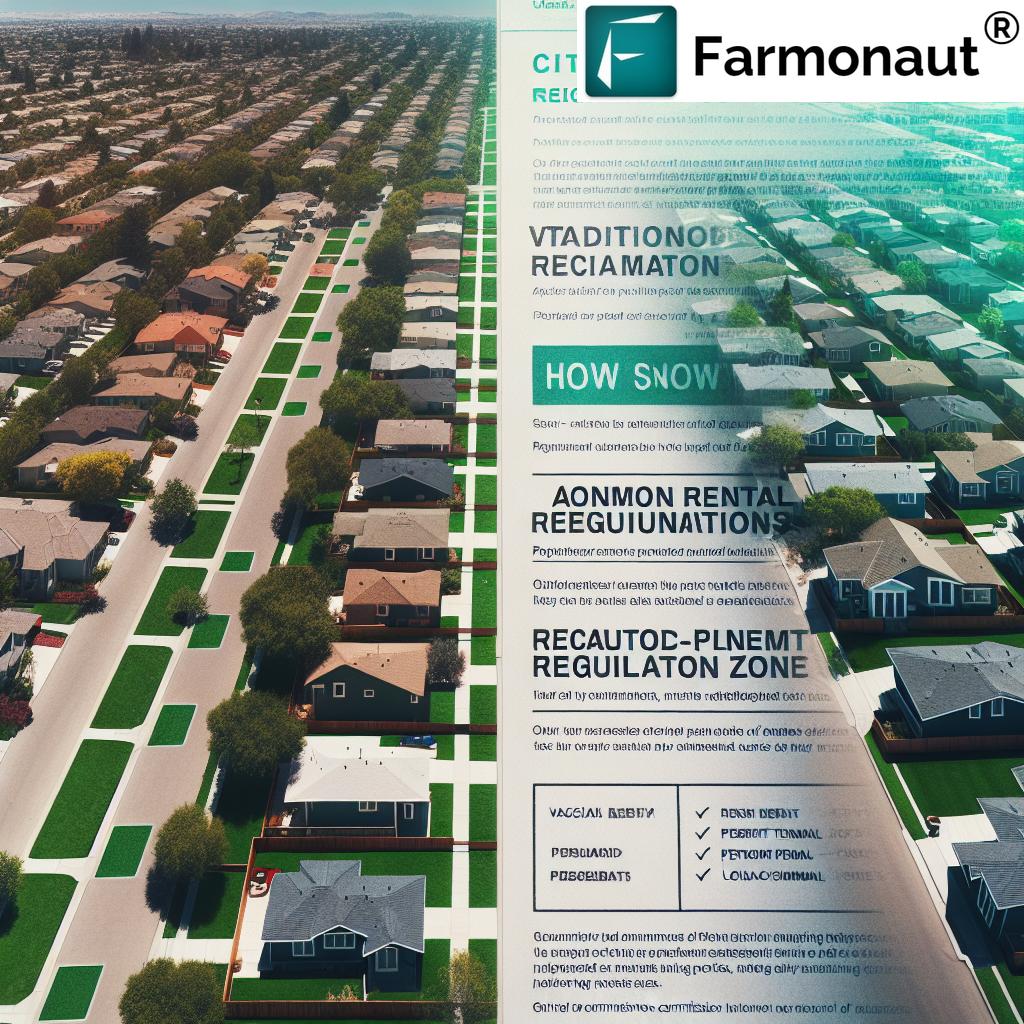Fayetteville’s Urban Crisis: City Council Tackles Stormwater Management and Short-Term Rental Regulations

“Fayetteville’s stormwater management fund approval created 3 new positions: GIS analyst, utility billing coordinator, and maintenance crew.”
In the heart of Fayetteville, a critical urban crisis has been unfolding, prompting the city council to take decisive action on two fronts: stormwater management and short-term rental regulations. We’ve witnessed a pivotal moment in our city’s history as local government officials grapple with the complexities of urban development and community preservation. This comprehensive analysis delves into the recent city council meeting that has set the stage for significant changes in how we address flooding issues and housing concerns in our growing municipality.
Stormwater Management: A New Era of Urban Flooding Control
The Fayetteville City Council has unanimously approved the creation of a stormwater management fund, marking a watershed moment in our efforts to combat urban flooding. This decision comes as a response to the increasing challenges posed by stormwater runoff, particularly in older neighborhoods where infrastructure struggles to cope with heavy rainfall events.
Let’s break down the key components of this groundbreaking initiative:
- New Positions Created: The council has greenlit the establishment of nine crucial positions to spearhead the stormwater utility. These include:
- GIS analyst
- Utility billing coordinator
- Crew leader
- Staff engineer
- Stormwater inspector
- Four maintenance workers
- Equipment Acquisition: Authorization for the purchase of necessary equipment to support the new stormwater management initiatives.
- Enterprise Fund Establishment: A new stormwater management enterprise fund will be set up to manage the financial aspects of this program.
- Temporary Funding Solution: The council has approved a loan from the general fund to kickstart the stormwater utility before fee collection begins.
The implementation of stormwater fees is slated for August, with the aim of funding comprehensive efforts to contain and control runoff. This strategic move addresses a pressing issue that has plagued parts of our city, especially in older neighborhoods where flooding has become a recurrent problem.
The Urgency of Action: Why Stormwater Management Matters
Our public works director, Chris Brown, highlighted during the December meeting the critical nature of this issue, particularly in the older sections of Fayetteville. The approval of this fund and the creation of new positions signify a proactive approach to urban flood control, demonstrating our city’s commitment to infrastructure improvement and public safety.
The GIS analyst and senior utility billing coordinator roles are prioritized for immediate filling, showcasing the importance of data-driven decision-making and efficient financial management in this initiative. The remaining positions will be phased in as fee collection begins to support their costs, ensuring a sustainable approach to staffing this new department.
While our focus is on urban stormwater management, it’s worth noting that innovative technologies are also revolutionizing other aspects of land management. For instance, Farmonaut’s satellite-based solutions are transforming agricultural land use, offering insights that could potentially inform urban planning and water management strategies in the future.
Short-Term Rental Regulations: Balancing Growth and Community
The city council meeting also addressed another pressing issue: the regulation of short-term rentals. This topic has sparked heated debate, highlighting the tension between economic opportunities and maintaining neighborhood character.
“The city council’s split vote on a short-term rental appeal highlights the complexity of balancing urban development with community preservation.”
A contentious appeal for a Type 2 short-term rental at 611 N. Oliver Ave. was brought before the council. To understand the context:
- Type 2 Rental Definition: A short-term rental property without a permanent resident.
- City Regulations: Fayetteville has imposed a cap on the number of Type 2 rentals within city limits.
- Permit Process: Prospective Type 2 rental operators must apply for a permit, secure Planning Commission approval, and obtain a business license.
The permit in question had initially received approval from the Planning Commission in a 5-1 vote. However, community pushback led to an appeal, with approximately 25 neighbors signing a petition against the permit based on concerns about:
- Lack of compatibility with the neighborhood
- Unenforceable safety issues
- High density of Type 2 rentals in the area
This situation underscores the ongoing housing crisis and the complex interplay between short-term rentals and long-term housing availability.
The Council’s Deliberation: A Microcosm of Urban Planning Challenges
The council’s discussion on this appeal serves as a perfect example of the challenges faced by growing urban areas in balancing development with community preservation. Key points from the deliberation include:
- Community Concerns: Neighbors voiced worries about safety and the potential erosion of neighborhood character due to the increasing presence of short-term rentals.
- Housing Crisis Impact: Some argued that the proliferation of short-term rentals contributes to the city’s housing crisis, while others disputed this claim.
- Objective Criteria: Council members grappled with the need to make decisions based on objective criteria rather than personal preferences.
- Split Decision: The council’s 4-4 vote, with Mayor Molly Rawn declining to vote, resulted in the failure of the appeal, effectively approving the short-term rental permit.
This outcome highlights the delicate balance city planners and officials must strike between promoting economic growth and preserving community identity.
Just as Fayetteville grapples with tracking and managing urban development, farmers and agricultural businesses face similar challenges in monitoring their lands. Farmonaut’s web app offers a solution for tracking agricultural land use, demonstrating how technology can aid in resource management across various sectors.
Comparative Analysis: Stormwater Management vs. Short-Term Rental Regulations
| Initiative | Key Actions | Expected Impact |
|---|---|---|
| Stormwater Management Fund |
– Creation of 9 new positions – Establishment of enterprise fund – Equipment purchase authorization – Temporary funding from general fund |
– Improved urban flooding control – Enhanced infrastructure in older neighborhoods – Data-driven decision making for water management |
| Short-Term Rental Regulations |
– Denial of Type 2 rental permit appeal – Enforcement of existing caps on rentals – Continued permit and licensing requirements |
– Potential impact on neighborhood character – Ongoing debate on housing availability – Economic opportunities for property owners |
The Road Ahead: Implementing Change and Monitoring Progress
As Fayetteville moves forward with these initiatives, several key factors will determine their success:
- Stormwater Fee Implementation: The rollout of stormwater fees in August will be crucial for funding the new positions and equipment necessary for effective flood control.
- Community Engagement: Ongoing dialogue with residents will be essential to address concerns about short-term rentals and their impact on neighborhoods.
- Data Collection and Analysis: The new GIS analyst position will play a vital role in mapping flood-prone areas and informing future infrastructure decisions.
- Policy Refinement: As these programs are implemented, the city council may need to refine policies based on real-world outcomes and community feedback.

Leveraging Technology for Urban Management
As we navigate these urban challenges, it’s worth considering how technological advancements could further aid our efforts. While our focus is on municipal issues, innovations in related fields could offer valuable insights.
For instance, carbon footprinting tools used in agriculture could be adapted to measure the environmental impact of urban developments. Similarly, fleet management solutions might inform more efficient deployment of city maintenance vehicles for stormwater management.
While this video showcases agricultural mapping, similar principles could be applied to urban planning, helping city officials visualize and manage land use more effectively.
Community Involvement and Public Works Projects
The success of these initiatives will largely depend on community involvement and the efficient execution of public works projects. Here’s how residents can stay informed and participate:
- Attend City Council Meetings: The next meeting is scheduled for April 15 at 5:30 p.m. at City Hall.
- Engage with Local Officials: Share your thoughts and concerns with council members and the mayor’s office.
- Stay Informed: Keep up with updates on the stormwater management program and short-term rental policies through official city channels.
Funding and Resource Allocation
The financing of these initiatives highlights the complexities of local government funding. The stormwater management program, in particular, demonstrates a creative approach to resource allocation:
- Initial Funding: A loan from the general fund will kickstart the program.
- Long-term Sustainability: Stormwater fees will provide ongoing funding, ensuring the program’s continuity.
- Reimbursement Strategy: The general fund will be reimbursed as fee collection begins, maintaining fiscal responsibility.
This approach allows for immediate action while establishing a sustainable funding model for the future.
While this video focuses on crop area estimation, the principles of accurate land measurement and analysis are equally applicable to urban planning and stormwater management efforts.
The Broader Impact: Housing Crisis and Urban Development
The debate surrounding short-term rentals is intrinsically linked to the broader housing crisis facing many urban areas. As we navigate these challenges, it’s crucial to consider:
- Housing Availability: How do short-term rentals affect the long-term housing market?
- Neighborhood Character: Balancing economic opportunities with community preservation.
- Regulatory Frameworks: Developing policies that address both resident concerns and property owner rights.
These issues reflect the growing pains of a city in transition, requiring thoughtful planning and community engagement to find sustainable solutions.
Looking to the Future: Sustainable Urban Development
As Fayetteville implements these new initiatives, we must keep an eye on long-term sustainability and adaptability. The creation of the GIS analyst position, in particular, signals a move towards data-driven decision-making in urban planning.
This approach aligns with broader trends in smart city development, where technology plays a crucial role in managing resources and improving quality of life. While our focus is urban, it’s worth noting that similar principles apply in other sectors. For instance, crop plantation and forest advisory services use advanced data analysis to optimize land use, a concept that could inform future urban green space management.
FAQs
- Q: When will the stormwater fees be implemented in Fayetteville?
A: The stormwater fees are expected to be implemented beginning in August. - Q: How many new positions were created for the stormwater utility?
A: The City Council approved the creation of nine new positions for the stormwater utility. - Q: What is a Type 2 short-term rental?
A: A Type 2 short-term rental is a property rented out on a short-term basis that does not have a permanent resident. - Q: How did the City Council vote on the short-term rental appeal?
A: The City Council vote resulted in a 4-4 split, with the mayor declining to vote, causing the appeal to fail. - Q: What were the main concerns of residents regarding the short-term rental permit?
A: Residents expressed concerns about lack of compatibility with the neighborhood, unenforceable safety issues, and the density of Type 2 rentals in the area.
Conclusion: A City in Transition
Fayetteville stands at a crossroads, facing the challenges of urban growth with innovative solutions and community engagement. The recent city council decisions on stormwater management and short-term rental regulations represent significant steps in addressing pressing urban issues. As we move forward, the success of these initiatives will depend on continued collaboration between city officials, residents, and stakeholders.
The balance between development and preservation, between economic opportunity and community character, will continue to be a central theme in Fayetteville’s evolution. By leveraging technology, embracing data-driven decision-making, and maintaining open dialogue with residents, our city is poised to navigate these challenges and emerge as a model for sustainable urban development.
As we implement these changes, we must remain adaptable, responsive to community needs, and committed to creating a city that works for all its residents. The path ahead may be complex, but with thoughtful planning and collective effort, Fayetteville is well-positioned to thrive in the face of urban challenges.
Earn With Farmonaut: Affiliate Program
Earn 20% recurring commission with Farmonaut’s affiliate program by sharing your promo code and helping farmers save 10%. Onboard 10 Elite farmers monthly to earn a minimum of $148,000 annually—start now and grow your income!















